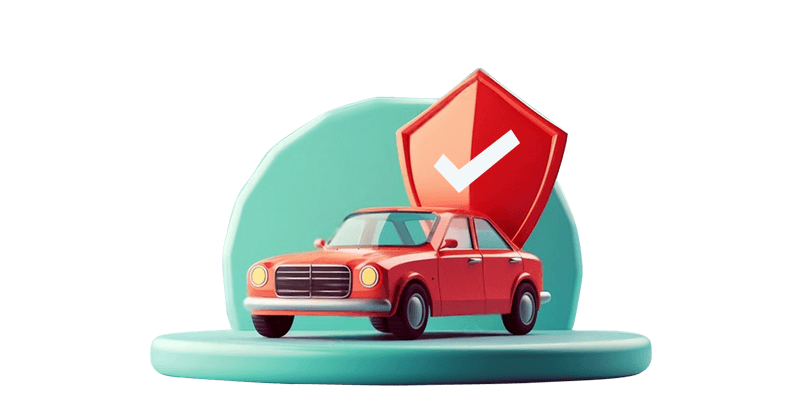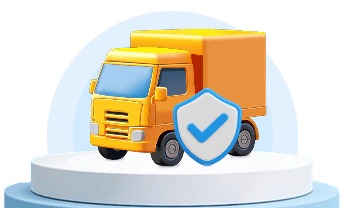
If you are a Filipino business owner with one or more vehicles, this article is a must-read. Whether you're running a logistics business, operating delivery vans, or owning a taxi fleet, risk is inevitable, especially in a country like ours where road accidents and nature’s fury are common events. Thus making commercial vehicle insurance an essential requirement for business.
In the Philippines, commercial vehicle insurance, like private car insurance, is a legal requirement, or rather, it's more than that. It shields the business from unexpected financial liabilities. Thus, it becomes crucial to choose the best commercial vehicle insurance provider and ensure that the business vehicles remain protected, allowing operations to remain uninterrupted.
To help you, we've created this guide of practical tips for choosing the right insurance provider for you & your business. In addition, you’ll learn about different types of coverage available, common mistakes to avoid, and have access to the most frequently asked questions around the subject. So, by the end of this, you’ll be fully prepared to secure the best commercial vehicle policy for yourself.
Let’s begin …
Commercial vehicle insurance: Understanding the requirement
If your business relies heavily on transportation, commercial vehicle insurance is a must-have. It doesn’t matter if you have a single pick-up, a delivery van, or several trucks lined up; what is essential is their protection. Here are a few reasons why commercial vehicle insurance matters for business owners -
Legal Requirement - In the Philippines, all motor vehicles, whether old or new, private or commercial, are required by law to obtain CTPL (Compulsory Third-Party Liability) insurance. This is required for vehicle registration at the LTO and provides coverage against third-party liability, including bodily injuries or death, caused by an accident involving the insured vehicle.
Financial protection - Road accidents are unfortunately a frequent occurrence in the Philippines, and the damage/loss is often substantial when a commercial vehicle, such as a truck or pickup with cargo, is involved. In such cases, commercial vehicle insurance is a significant help, as it offers coverage to owners against damages caused by accidents, collisions, theft, natural disasters, fire, vandalism, and other similar events.
Maintaining business continuity - Commercial vehicle insurance ensures that when the unit is out of service for weeks or damaged due to an accident, the repair cost doesn’t fall on the owner. Thus, it prevents any disruption to business operations due to unannounced financial strain. In short, insurance ensures a seamless workflow by covering losses and helping things get back to normal quickly.
Also Read: Truck/Commercial Vehicle Insurance 101: What Filipino business owners need to know
Commercial vehicle insurance: Types of coverage available
Here’s the list of the most common commercial vehicle insurance plans available in the Philippines -
Compulsory Third-Party Liability Insurance - This is the most basic insurance coverage available. It is mandatory to have coverage that covers only injuries or death of third parties caused by the insured commercial vehicle.
Comprehensive Insurance - This is a more complete insurance plan compared to CTPL; it offers protection against theft, collision, fire, vandalism, damage to the vehicle, etc
Acts of God coverage - In the Philippines, natural calamities are widespread and frequent, resulting in significant damage to vehicles on a large scale. This particular add-on is highly recommended for all commercial vehicle owners due to its coverage against nature’s fury.
Personal Accident coverage - This add-on provides coverage to the driver and passengers against injuries, disability, or death resulting from an accident or collision involving the insured vehicle.
 Photo from World Insurance Association
Photo from World Insurance AssociationBuying commercial vehicle insurance: Major factors to consider
Now that you have understood the importance of commercial insurance, it is time to discuss the key factors to consider when choosing a provider.
No.1. Reputation of the insurance company
When searching for a commercial vehicle insurance provider, it is crucial to conduct thorough background checks. Here’s the list of attributes you need to look for -
- Strong presence in the market
- Long track record
- Insurance Commission (IC) recognition
No.2. Scope of coverage
Insurance is a coverage offered by an insurer for which you pay a premium. Therefore, coverage is the very essence of the matter. When selecting a provider, consider the coverage it offers and verify if it meets your needs, requirements, and budget. Also, prefer providers that allow customised coverage plans.
No.3. Insurance cost
Look for companies that offer the best value for money deals. There is no point spending money on a policy that doesn’t provide optimum coverage. Remember, don’t pick the cheapest plan; compare providers based on value, not just cost.
No.4. Accessibility & customer service
Make it a point to select a provider whose branch is easily accessible. It’s important because there may be times when you need to visit the provider in person for policy-related matters. Here’s the list of attributes you need to look for -
- The provider has multiple branches
- Responsive customer support
- 24/7 hotline number
No.5. Claim settlement process & speed
Pick an insurance provider that -
- Process the claim quickly
- Has an impressive turnaround time for claims
- Has great customer reviews
No.6. Discounts, offers, & special packages
When selecting a commercial vehicle insurance provider, look for those offering fleet insurance packages and special discounts for businesses. This will ultimately save money.
Also Read: Why every truck business needs Comprehensive Truck Insurance in the Philippines
Mistakes to avoid when choosing a provider
Not comparing quotes from multiple providers - As mentioned above, a policyholder/business owner must compare commercial vehicle insurance quotes from at least three to four providers before finalising the deal. This will ensure an optimum package of coverage and price.
When choosing a policy, avoid making a mistake - Don’t make the mistake of picking an insurance plan solely based on its price. Just because it falls in your budget doesn’t ensure optimum coverage, which is the whole point of insurance. Cheap policies might seem attractive, but it's essential to check the level of protection they offer.
Not reading the fine print - It is a must for a policyholder to read the policy fine print. This will give you a clear idea about the coverage inclusions & exclusions. Also, it is a great way to check for any errors or misprints.
 Photo from Shutterstock
Photo from ShutterstockTips for comparing commercial vehicle insurance quotes
Tip 1. Seek recommendations
It is a good idea to ask around and see which provider is favoured in your industry. This is a great way to get access to genuine reviews.
Tip 2. Online reviews & testimonials
Another great way to compare providers is by reading reviews and testimonials on online forums and media groups.
Tip 3. Consult with industry experts
It will work if you gain insights about the shortlisted provider from an industry insider or associate.
Practical advice to manage commercial vehicle insurance
- Maintain proper records of all insurance-related transactions. This will help you at the time of claim filing and track expenses.
- Be sure to review/update your insurance policy periodically. As the business grows, so does your need for insurance coverage. Ensure that your current needs align with the coverage offered. For instance, if you are more fleet, update the provider about additional units and get them included.
- Track your policy expiry date to initiate timely renewal.
Also Read: Roadside Assistance in the Philippines: What it covers and why you need it
Bottom line
Suppose you are a business owner whose daily operations depend on dedicated vehicles, brought in specifically for the purpose. In that case, you must invest in a good commercial vehicle insurance policy. You see, doing so will shield your beloved units against damage caused by accidents, collisions, fires, floods, vandalism, and other similar events. Otherwise, you’ll end up paying all the repair bills that, as you know, are too high to handle. However, obtaining commercial vehicle insurance is not straightforward; it involves considering several factors, including the provider’s reputation, scope of coverage, affordability, and claim process.
Make sure to make a wise decision after considering all the above points, and keep your business vehicle and operations safe.
FAQs
Q1. Is comprehensive insurance mandatory for commercial vehicles?
Ans. No, only CTPL insurance is mandatory by law; the rest of all coverage options are optional.
Q2. What coverage does CTPL insurance provide?
Ans. CTPL, the minimum insurance requirement for commercial vehicles, offers coverage against third-party bodily injuries or death.
Q3. How much does commercial vehicle insurance cost?
Ans. The cost of commercial vehicle insurance depends on several factors, such as the type of vehicle, coverage, provider, and other relevant details. However, the CTPL coverage starts at PHP 650.
Q4. Which are some of the reputed commercial vehicle insurance providers in the country?
Ans. Prudential Guarantee, Malayan Insurance, Standard Insurance, Pioneer Insurance.
Q5. Is it possible to insure multiple commercial vehicles under one policy?
Ans. Yes, fleet insurance offers the facility to cover multiple vehicles at once.
Q6. Is vehicle repair cost covered under CTPL insurance?
Ans. No. If you require vehicle repair bill coverage, opt for a comprehensive insurance plan.
Q7. What will happen if I fail to renew commercial vehicle insurance on time?
Ans. If you fail to renew your insurance policy on time, your policy will lapse and all your coverages will be discontinued. Furthermore, without an active CTPL policy, you won’t be able to renew your motor vehicle registration at LTO.
Q8. Can my insurance policy be transferred to a new provider?
Ans. Yes, switching your insurance provider mid-term or at the time of renewal is entirely possible.
Q9. What documents are required to apply for commercial vehicle insurance?
Ans. Typically, you will need the following: vehicle’s OR/CR, LTO documents, driver’s license, valid ID, and company registration papers.
Q10. Do insurance companies in the Philippines offer 24/7 roadside assistance?
Ans. Only if the roadside assistance add-on is a part of your insurance policy.
Also Read: Expired Insurance vs. Cancelled Policy: What’s the difference?











